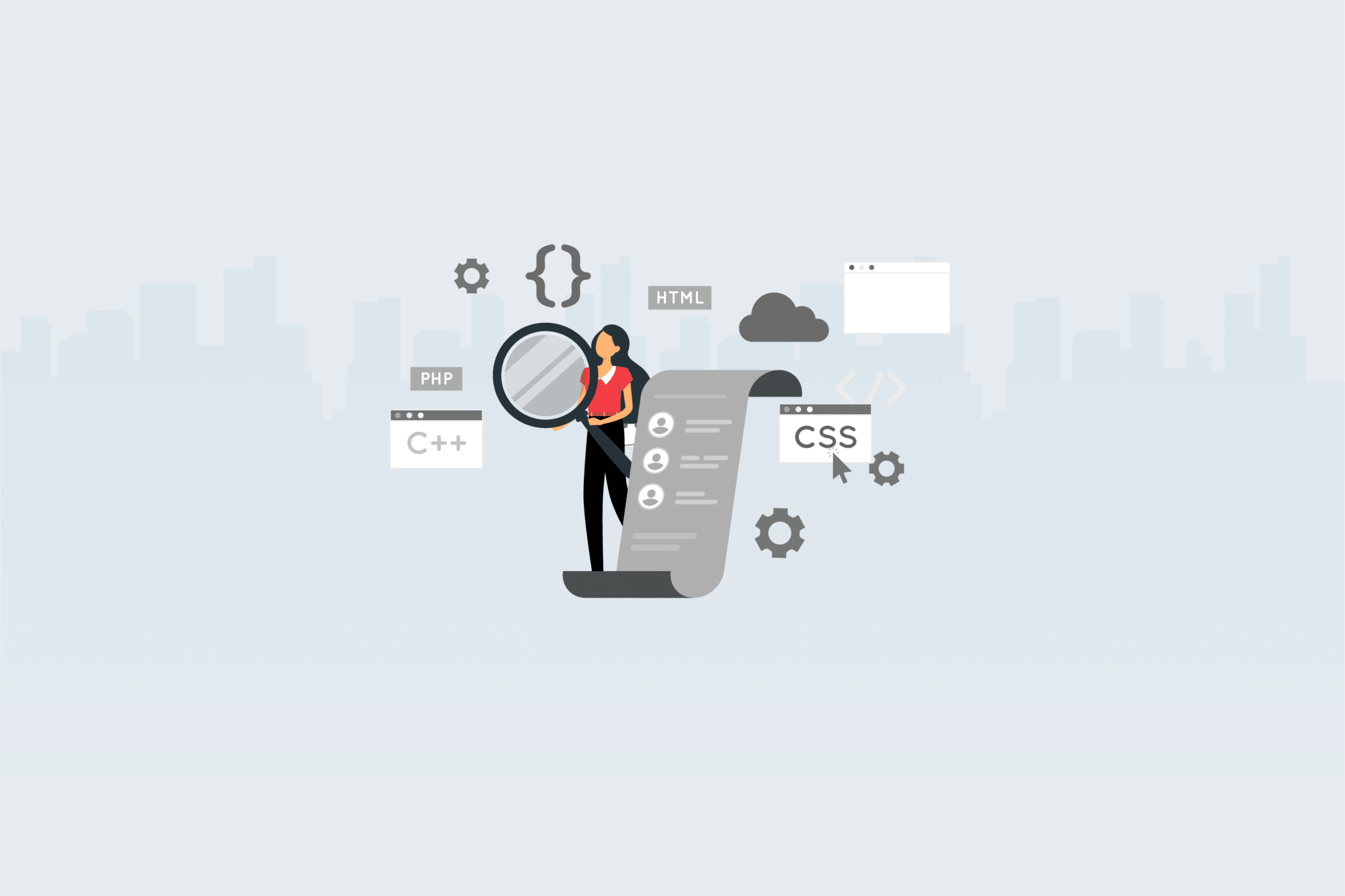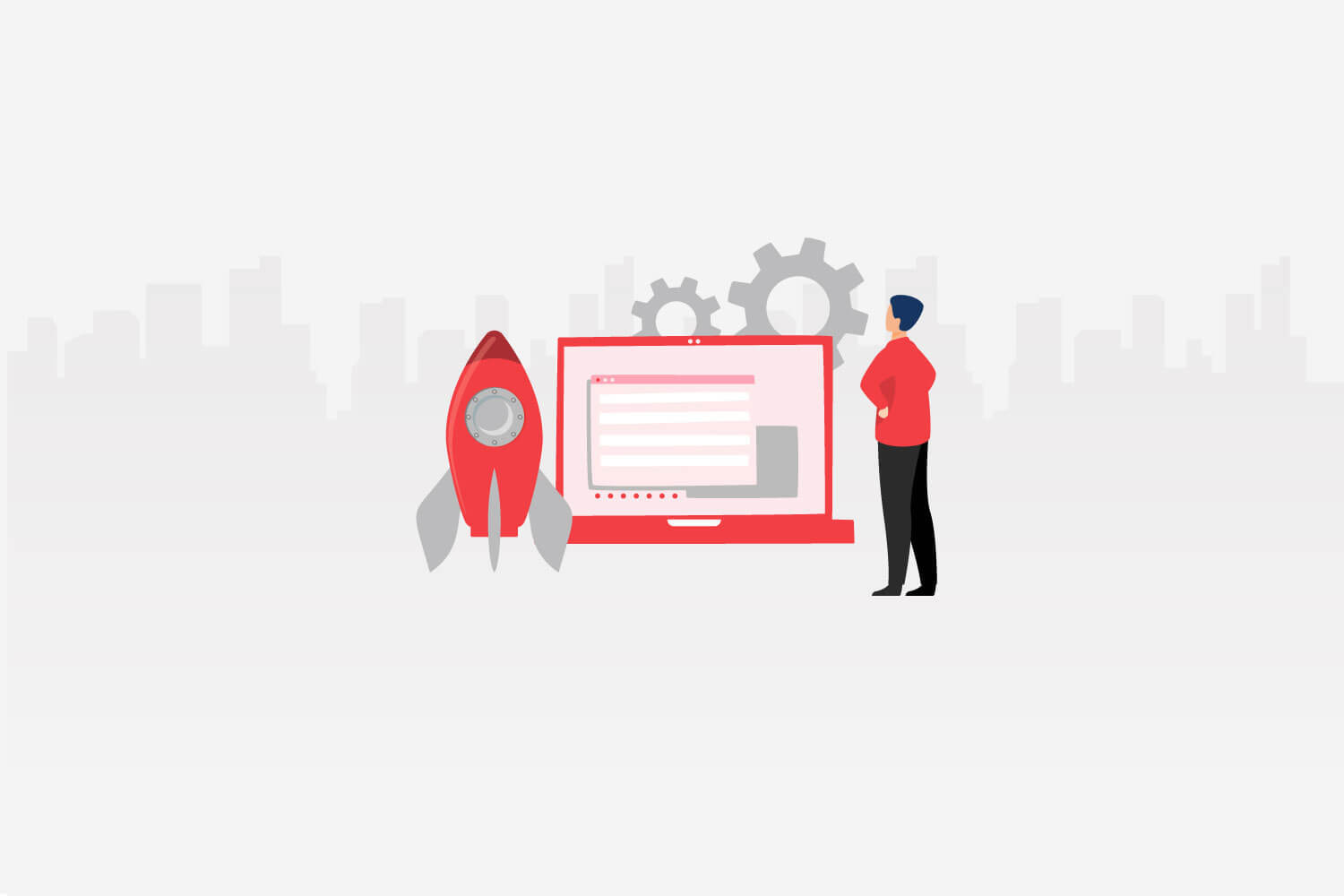The role of the Supplier Relationship Manager has emerged as a crucial component in today’s dynamic business landscape, where organizations strive for efficiency and collaboration across their supply chains. As HR professionals and CXOs navigate the recruiting landscape, it is essential to understand the growing significance of this role. According to recent analytics, there has been a notable surge in demand for Supplier Relationship Managers, indicating a growing recognition of the strategic value they bring.
This trend reflects the evolving expectations of organizations, emphasizing the need for effective supplier partnerships, risk mitigation, cost optimization, and continuous improvement. In this context, it becomes imperative for HR teams and executives to ask insightful interview questions that evaluate a candidate’s ability to drive successful supplier relationships and contribute to the overall business objectives.
Here are the top 60 Supplier Relationship Manager interview questions to ask job applicants:
15 general interview questions for Supplier Relationship Manager
- Can you explain your experience in managing supplier relationships and how you have contributed to enhancing organizational efficiency and performance?
- How do you prioritize and evaluate suppliers to ensure the right fit for the organization’s strategic goals?
- Can you describe a challenging supplier relationship you have managed in the past and how you resolved any conflicts or issues that arose?
- How do you establish key performance indicators (KPIs) to measure and monitor supplier performance? Can you provide an example of how you have utilized KPIs to drive supplier improvement?
- What strategies do you employ to proactively identify and mitigate supplier-related risks? Can you share an example of a risk you have successfully managed?
- How do you foster effective communication and collaboration with suppliers to ensure mutual understanding and alignment of goals?
- Can you discuss your experience in negotiating contracts and agreements with suppliers? How do you ensure fair and favorable terms for the organization?
- How do you stay updated on market trends, industry best practices, and emerging technologies to drive innovation in supplier relationships?
- Can you provide an example of a cost-saving initiative you have implemented through effective supplier management?
- How do you approach supplier performance reviews and continuous improvement processes? Can you share an example of a supplier performance improvement project you have led?
- How do you handle situations where suppliers fail to meet agreed-upon standards or deadlines? Can you describe a specific instance and how you addressed it?
- How do you establish and maintain strong relationships with internal stakeholders to align supplier management strategies with broader organizational objectives?
- Can you discuss your experience in managing supplier contracts and ensuring compliance with legal and regulatory requirements?
- How do you assess and manage supplier diversity and inclusion initiatives within the procurement process?
- Can you provide an example of a successful supplier relationship you have cultivated and how it positively impacted the organization?
5 sample answers to general interview questions for Supplier Relationship Manager
Tell me about your experience in managing supplier relationships.
Look for candidates who can demonstrate their experience in effectively managing supplier relationships, such as negotiating contracts, resolving conflicts, and driving performance improvements.
Example: “In my previous role as a Supplier Relationship Manager, I was responsible for managing a portfolio of suppliers, overseeing contract negotiations, and ensuring timely delivery of goods. I established open lines of communication with suppliers, conducted regular performance reviews, and addressed any issues or concerns promptly. As a result, I was able to cultivate strong relationships with our suppliers and achieve cost savings through improved terms and performance.”
How do you prioritize and manage multiple supplier relationships?
Look for candidates who can demonstrate strong organizational and multitasking skills, as well as the ability to prioritize and allocate resources effectively.
Example: “To effectively manage multiple supplier relationships, I start by assessing the criticality and impact of each supplier on our operations. I then prioritize them based on factors such as strategic importance, risk level, and value-add potential. I establish clear communication channels, set expectations, and proactively engage with suppliers to build collaborative partnerships. Additionally, I use supplier management software to track key performance indicators, monitor contract compliance, and ensure timely follow-up on action items.”
How do you handle conflicts or disputes with suppliers?
Look for candidates who can demonstrate strong problem-solving and negotiation skills, as well as the ability to maintain positive working relationships even during challenging situations.
Example: “When conflicts or disputes arise with suppliers, I believe in addressing them proactively and transparently. I start by listening to their concerns and understanding their perspective. I then collaborate with internal stakeholders to assess the situation and identify potential solutions. In negotiations, I strive to find win-win outcomes that align with both parties interests. By maintaining open lines of communication and fostering a problem-solving mindset, I have been able to resolve conflicts and strengthen relationships with suppliers.”
How do you ensure supplier performance meets expectations?
Look for candidates who can demonstrate their ability to set performance expectations, monitor progress, and take corrective actions when necessary.
Example: “To ensure supplier performance meets expectations, I establish clear performance metrics and Key Performance Indicators (KPIs) during contract negotiations. I communicate these expectations to suppliers and conduct regular performance reviews to track progress. If any gaps or deviations from the agreed-upon targets are identified, I work closely with the supplier to understand the root causes and develop corrective action plans. By providing regular feedback and offering support when needed, I have been able to drive continuous improvement in supplier performance.”
How do you stay updated on market trends and industry developments related to supplier management?”
Look for candidates who demonstrate a proactive approach to staying informed about industry trends and advancements, such as attending conferences, participating in professional networks, or utilizing online resources.
Example: “As a Supplier Relationship Manager, I understand the importance of staying updated on market trends and industry developments. I actively participate in industry conferences, workshops, and webinars to learn about emerging best practices and innovative supplier management strategies. Additionally, I maintain a strong network of professionals in the field and regularly engage in knowledge-sharing activities. I also leverage online resources such as industry publications and research reports to stay informed about market trends and incorporate them into my supplier management strategies.”
15 behavioral interview questions for Supplier Relationship Manager
- Tell me about a time when you successfully managed a difficult supplier relationship. How did you handle the challenges and achieve a positive outcome?
- Describe a situation where you had to negotiate a complex contract with a supplier. How did you ensure favorable terms while maintaining a strong relationship?
- Can you share an example of how you improved supplier performance and achieved cost savings for your organization?
- Tell me about a time when you had to resolve a conflict or disagreement with a supplier. How did you approach the situation and what was the outcome?
- Describe a project where you had to onboard a new supplier. How did you ensure a smooth transition and establish a productive working relationship?
- Share an experience when you implemented a supplier evaluation or scorecard system. How did it help in managing supplier relationships?
- Can you provide an example of how you identified and mitigated risks associated with supplier partnerships?
- Tell me about a time when you had to terminate a supplier relationship. What were the reasons, and how did you handle the process?
- Describe a situation where you collaborated with internal stakeholders to align supplier strategies with organizational goals. What was the outcome?
- Share an experience where you had to address a supplier’s non-compliance with contractual terms. How did you handle the situation and ensure future compliance?
- Can you provide an example of how you leveraged technology or tools to streamline supplier management processes?
- Describe a time when you had to manage multiple competing priorities with different suppliers. How did you prioritize and allocate resources effectively?
- Tell me about a situation where you had to resolve a performance issue with a supplier. How did you identify the root cause and implement corrective actions?
- Can you share an experience when you successfully negotiated cost reductions or improved pricing terms with a supplier?
- Describe a time when you implemented a supplier development program to enhance supplier capabilities and improve overall performance.
5 sample answers to behavioral interview questions for the Supplier Relationship Manager
- Tell me about a time when you successfully managed a difficult supplier relationship. How did you handle the challenges and achieve a positive outcome?
Look for candidates who can effectively handle challenging supplier relationships by demonstrating strong communication, problem-solving, and relationship-building skills.
Example: “In my previous role, I had a difficult supplier relationship where there were frequent delays in delivery, quality issues, and communication breakdowns. To address these challenges, I initiated a face-to-face meeting with the supplier to understand their concerns and expectations. We established a dedicated communication channel and implemented a quality improvement plan together. By maintaining regular communication, setting clear expectations, and providing support and feedback, we were able to resolve the issues and achieve a positive outcome, resulting in improved delivery performance and product quality.”
- Describe a situation where you had to negotiate a complex contract with a supplier. How did you ensure favorable terms while maintaining a strong relationship?
Look for candidates who can demonstrate strong negotiation skills, while also emphasizing their ability to maintain a collaborative and positive relationship with suppliers.
Example: “In a previous project, I was tasked with negotiating a complex contract with a critical supplier. While ensuring favorable terms for our organization was important, I also recognized the need to maintain a strong relationship to foster long-term collaboration. I approached the negotiations with a win-win mindset, focusing on mutual benefits and value creation. Through open and transparent communication, understanding their priorities, and exploring creative solutions, we reached an agreement that met our needs while also satisfying the supplier’s requirements. This approach strengthened our partnership and paved the way for future successful collaborations.”
- Can you share an example of how you improved supplier performance and achieved cost savings for your organization?
Look for candidates who can demonstrate their ability to identify opportunities for performance improvement and cost savings, as well as their skills in implementing effective strategies to achieve those goals.
Example: “In a previous role, I identified an opportunity to improve supplier performance and reduce costs by streamlining the supply chain process. I conducted a thorough analysis of our current processes and engaged in collaborative discussions with the supplier. Together, we identified areas for improvement, such as optimizing order fulfillment, reducing lead times, and implementing vendor-managed inventory. By implementing these changes and closely monitoring performance metrics, we were able to achieve a significant improvement in supplier performance, resulting in cost savings for our organization.”
- Tell me about a time when you had to resolve a conflict or disagreement with a supplier. How did you approach the situation and what was the outcome?
Look for candidates who can demonstrate their ability to handle conflicts with suppliers in a constructive manner, focusing on effective communication, problem-solving, and relationship-building skills.
Example: “In a previous project, I encountered a conflict with a supplier regarding non-compliance with quality standards. I approached the situation by scheduling a meeting with the supplier’s management team to discuss the issue openly and find a resolution. I actively listened to their concerns, shared our expectations, and collaborated on developing a corrective action plan. Through regular follow-up, monitoring, and support, we successfully resolved the conflict and re-established a positive working relationship. This experience taught me the importance of open communication and finding mutually beneficial solutions when conflicts arise.”
- Describe a project where you had to onboard a new supplier. How did you ensure a smooth transition and establish a productive working relationship?
Look for candidates who can demonstrate their ability to effectively onboard new suppliers by showcasing their organizational skills, attention to detail, and relationship-building capabilities.
Example: “In a previous role, I was responsible for onboarding a new supplier to support our company’s expansion. To ensure a smooth transition, I developed a comprehensive onboarding plan that included clear expectations, milestones, and communication protocols. I conducted regular meetings with the supplier to provide guidance, address any concerns, and build a foundation of trust. I collaborated closely with cross-functional teams to ensure seamless integration of the supplier into our operations. By proactively managing the onboarding process, we successfully established a productive working relationship that resulted in timely deliveries, quality improvements, and cost savings for our organization.”
15 personality interview questions for the Supplier Relationship Manager
- How do you handle stress and pressure in a fast-paced supplier management environment?
- Describe a situation where you had to adapt to changes in supplier requirements or market conditions. How did you handle the situation?
- Can you share an example of when you demonstrated strong problem-solving skills to overcome a challenging supplier-related issue?
- How do you prioritize and manage your time when dealing with multiple suppliers and competing demands?
- Describe a time when you had to take a calculated risk in managing a supplier relationship. How did you approach the situation?
- How do you foster collaboration and maintain positive relationships with suppliers, even during challenging circumstances?
- Can you provide an example of when you successfully influenced stakeholders to support your supplier management strategies or decisions?
- Describe a situation where you demonstrated effective communication skills in conveying complex information or negotiating with suppliers.
- How do you stay motivated and maintain a proactive approach to managing supplier relationships?
- Can you share an experience where you demonstrated resilience in overcoming setbacks or obstacles in supplier management?
- Describe a time when you had to make a difficult decision related to a supplier. How did you approach the decision-making process?
- How do you ensure ethical practices and compliance when working with suppliers? Can you provide an example?
- Describe a situation where you demonstrated your ability to build and maintain trust with suppliers. How did you accomplish this?
- How do you stay informed about industry trends and advancements in supplier management practices? Can you provide an example of how you applied this knowledge?
- Describe a time when you had to handle confidential or sensitive information related to supplier relationships. How did you ensure discretion and maintain confidentiality?
5 sample answers to personality interview questions for the Supplier Relationship Manager
- How do you handle stress and pressure in a fast-paced supplier management environment?
Look for candidates who can demonstrate their ability to handle stress and pressure effectively, maintain composure, and make sound decisions even in challenging situations.
Example: “In a fast-paced supplier management environment, I thrive under pressure by prioritizing tasks, maintaining open lines of communication, and staying organized. I understand the importance of remaining calm and focused, even when faced with tight deadlines or unexpected challenges. I find that taking short breaks, practicing mindfulness techniques, and seeking support from colleagues or mentors help me manage stress effectively. By adopting a proactive and solution-oriented mindset, I can navigate high-pressure situations while maintaining the quality of my work and fostering positive relationships with suppliers.”
- Describe a situation where you demonstrated resilience in overcoming setbacks or obstacles in supplier management.
Look for candidates who can showcase their resilience and perseverance when facing setbacks or obstacles, highlighting their ability to learn from failures and adapt their approach.
Example: “In one project, we faced unexpected supply chain disruptions due to a natural disaster that affected several of our suppliers. Despite the setback, I immediately initiated contingency plans and alternative sourcing strategies. I collaborated closely with internal teams to minimize the impact on production schedules and communicated transparently with affected suppliers to find mutually beneficial solutions. While the situation was challenging, my resilience and adaptability allowed me to navigate through the obstacles, maintain business continuity, and strengthen our relationships with both our primary suppliers and new ones we had to engage.”
- How do you foster collaboration and maintain positive relationships with suppliers, even during challenging circumstances?
Look for candidates who can demonstrate their ability to build and maintain strong relationships with suppliers, emphasizing their collaboration, empathy, and conflict-resolution skills.
Example: “I believe that fostering collaboration and maintaining positive relationships with suppliers is crucial, particularly during challenging circumstances. I prioritize open and transparent communication, actively listening to their concerns, and seeking to understand their perspectives. By empathizing with their challenges and involving them in problem-solving discussions, I create an environment of trust and collaboration. If conflicts arise, I approach them with a solutions-oriented mindset, finding common ground and mutually beneficial outcomes. Through proactive relationship-building activities, such as supplier forums, regular performance reviews, and face-to-face meetings, I ensure that suppliers feel valued and engaged in our partnership.”
- How do you ensure ethical practices and compliance when working with suppliers? Can you provide an example?
Look for candidates who prioritize ethical practices and compliance in supplier relationships, demonstrating their knowledge of relevant regulations and their commitment to upholding high standards.
Example: “Ethical practices and compliance are of utmost importance when working with suppliers. I ensure ethical behavior by conducting due diligence on potential suppliers, and evaluating their track records and certifications. I also establish clear expectations and guidelines, clearly communicating our code of conduct and anti-corruption policies. To ensure compliance, I regularly review supplier contracts, monitor key performance indicators, and conduct periodic audits. In one instance, I identified a potential compliance issue related to product safety standards with a supplier. I immediately initiated an investigation, collaborated with internal quality teams, and worked closely with the supplier to rectify the issue promptly, ensuring compliance with regulatory requirements.”
- How do you stay motivated and maintain a proactive approach in managing supplier relationships?
Look for candidates who can demonstrate their self-motivation, proactiveness, and their ability to take initiative and drive continuous improvement in supplier management.
Example: “To stay motivated and maintain a proactive approach in managing supplier relationships, I set clear goals and benchmarks for myself. I regularly update my knowledge of industry trends and best practices, attending relevant conferences and workshops. By staying informed, I can identify opportunities for improvement and innovation. I proactively seek feedback from suppliers and internal stakeholders to identify areas of strength and areas for growth. Additionally, I am committed to continuous learning, participating in professional development programs, and seeking new certifications. This motivation and proactive mindset allow me to constantly refine my supplier management strategies and deliver exceptional results.”
When should you use skill assessments in your hiring process for Supplier Relationship Manager?
Skill assessments can be valuable tools in the hiring process for a Supplier Relationship Manager position. Assessments are important because they provide objective measures of a candidate’s skills, knowledge, and abilities, allowing employers to make informed hiring decisions. By using skill assessments, employers can gain deeper insights into a candidate’s capabilities and ensure they possess the necessary skills required for the role.
When assessing the skills of a Supplier Relationship Manager, there are several types of assessments that can be utilized. Some examples include
- Supplier Relationship Management Assessment
This assessment evaluates a candidate’s understanding of supplier management principles, strategies, and best practices. It may include questions or scenarios that assess their ability to handle supplier negotiations, resolve conflicts, and optimize supplier performance.
- Communication and Relationship Building Assessment
This assessment focuses on a candidate’s communication skills, including their ability to build and maintain positive relationships with suppliers. It may involve scenarios or role-plays that assess their communication style, conflict resolution skills, and stakeholder management capabilities.
- Analytical and Problem-Solving Assessment
This assessment measures a candidate’s analytical and problem-solving skills, which are crucial in supplier management. It may include case studies or situational questions that assess their ability to analyze data, identify root causes of issues, and develop effective solutions.
- Time Management and Prioritization Assessment
This assessment evaluates a candidate’s ability to manage multiple tasks and prioritize competing demands. It may involve questions or simulations that assess their organizational skills, ability to meet deadlines, and handle time-sensitive supplier-related responsibilities.
By incorporating these skill assessments into the hiring process, employers can identify candidates who possess the necessary skills to excel in the Supplier Relationship Manager role, ensuring a more successful and efficient recruitment process.
Use our interview questions and skill tests to hire talented Supplier Relationship Manager
Unlock the potential of your hiring process with Testlify’s comprehensive skill assessments and interview questions specifically designed for supplier relationship manager.
Our extensive test library offers a wide range of assessments, including cognitive function, personality, situational judgment, programming, and more. By leveraging these assessments, you can objectively evaluate candidates’ abilities, ensuring you shortlist the most talented individuals efficiently.
To further enhance your hiring process, we invite you to book a free 30-minute live demo. Our expert team will guide you through the platform, showcasing relevant skill tests tailored to your hiring needs. With our support, you can streamline candidate selection, saving valuable time and resources.
Ready to find the perfect fit for your supplier relationship manager role? Testlify provides the tools you need to make informed hiring decisions. Explore our skill assessments and interview questions today to uncover exceptional talent for your team.








